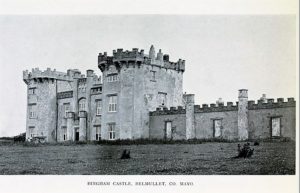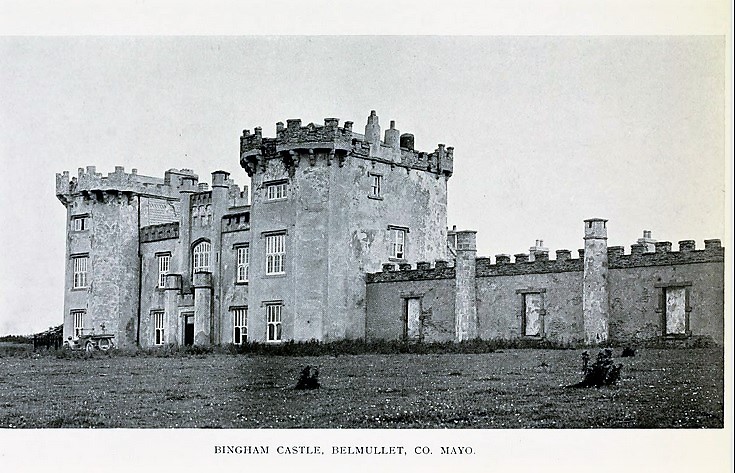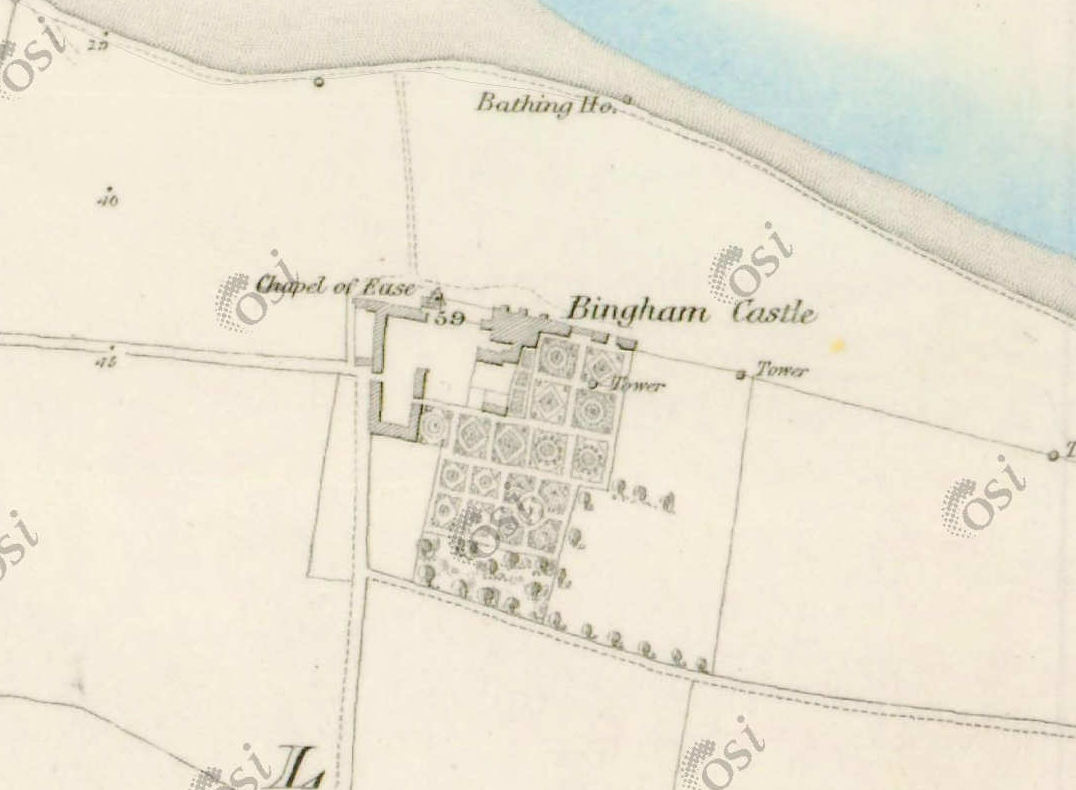 Few families have inflicted more anguish in Erris than the Binghams. Starting back in the late 1500s, Sir Richard Bingham was appointed governor of Connacht. In addition to seizing Irish and Norman lands for the British Crown, he also slaughtered over a thousand seamen from the Spanish Armada which had become shipwrecked on the northern coast of Ireland.
Few families have inflicted more anguish in Erris than the Binghams. Starting back in the late 1500s, Sir Richard Bingham was appointed governor of Connacht. In addition to seizing Irish and Norman lands for the British Crown, he also slaughtered over a thousand seamen from the Spanish Armada which had become shipwrecked on the northern coast of Ireland.
1790 saw the arrival of Major Denis Bingham to the Mullet. He was sent to the area by England after the failed French invasion I mentioned yesterday. While there, he lay claim to an inheritance of half of Shaen’s land stretching from the middle of the Mullet all the way to Bangor, which is a town he claimed and renamed.
Belmullet was already established at this point, but was really only a few building on a street. Bingham decided to build his own town in the middle of the Mullet, the primary purpose of which was to provide his newly build castle with all the services it would need.
And what a castle is was – three stories high with a chapel, police barracks in the basement, a pier and several acres of manicured gardens. If you were a young woman looking for work at the castle, best to look somewhere else since it’s believed most of the female staff was nothing more than the Major’s Harem.
Unfortunately for Major Bingham, his town started to decay as soon as it was built. He commissioned roads to be built that connected Binghamstown with Castlebar, but these took many years to complete, and had the side effect of connecting Belmullet years before they reach Binghamstown.
In an attempt to drum up business, Bingham secured the rights to hold a town fair on the first day of each month. This should have brought many of the surrounding farmers and craftsmen to the village to sell their wares, but being a greedy bastard, Bingham decided to charge a fee to enter the town on fair day. To insure everyone paid, he built a great gated wall on the main road from Belmullet, parts of which still exist today. The great gate, or An Geata Mor, became the Irish name for the town and is still its name to this day.
With the building of the Great Gate, people started to look elsewhere to hold a fair, and Belmullet was more than welcoming. From that point forward, the downward fate of Binghamstown was assured. Major Denis Bingham died in 1902. The Great Famine had the effect of bankrupting the family. Today, there are no Binghams in the Belmullet area and that’s just fine with me.

